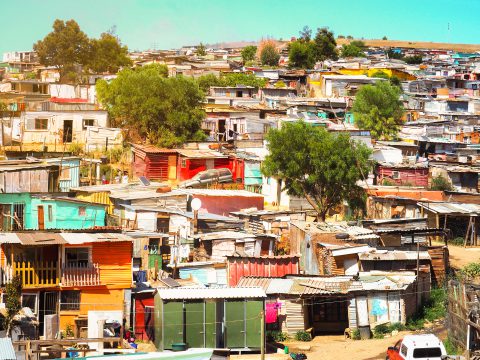Technology, Solutions and Innovations
The New Normal Will Be Built On Abundant Internet Access
By: Dietlof Mare, CEO at Vumatel
If the last few months, since schools and businesses closed as part of the national lockdown, have taught us anything, it is that connectivity and access to abundant internet access is no longer a nice to have. It is a critical enabler of what we have started calling our ‘new normal’, the ability to work and learn from home.
But if we look beyond remote learning and working, there is another new normal that we need to prepare for. Forging a new economy in South Africa, that is underpinned by e-commerce and digital entrepreneurship.
We believe that at the heart of forging this new economy is purpose-built, abundant internet access and it goes beyond what mobile data can offer businesses, schools, entrepreneurs and the public sector.
In this information age, it is important to distinguish between access to the internet and abundant internet. In South Africa, access to the internet is relatively high, due to the mobile networks.
But it is abundant; unlimited; fit for purpose internet access that fuels home businesses; e-commerce; remote working and learning and streaming services. And that can only truly be delivered through a fibre network that reaches all communities across the country.
COVID-19, the national lockdown, phased re-opening of schools and the economy make a compelling case for recognising that abundant Internet access is becoming an essential utility to be provided to citizens and should start to be considered as an addition to our basic human rights.
This has far reaching consequences. Consider the impact that Internet access has on one of the biggest challenges South Africa faces today – education. The school child working on a project due for the next day, with an uncapped high speed connection, will be able to research the topic, watch videos, access educational resources online like Khan Academy, Google Classrooms and Microsoft Teams, amongst others. These online resources will greatly enhance understanding of the topic and beyond.
In contrast, a child who only has access to a small amount of mobile data, if at all, will not be afforded the same access to resources. Without abundant affordable access to the Internet, the opportunity to learn and grow is substantially limited. Both children in this example have Internet access, but only one has Internet abundance and that difference is creating a digital divide which is extremely difficult to overcome.
We knew we had to make a difference. And what started in the streets of Parkhurst in 2014, was not just the fibre revolution that we are seeing today, but a commitment to deliver abundant, reliable connectivity to schools as a means of narrowing the digital divide. We knew then, that by providing schools with the infrastructure to get connected, would allow them to more actively participate in the global village.
Today, we have connected more than 390 schools across our fibre networks and in so doing, enabled more than 290 000 learners and teachers, to access the Internet and its resources.
This illustrates the impact of the digital divide on education, but think about what the impact of digital inequality might be on other aspects of our lives – from applying for jobs online, to finding information, to free Wi-Fi calling, to accessing online entertainment, socialising and starting your own business. All of these are made possible with access to unlimited and abundant Internet.
Historically, providing affordable, accessible, abundant Internet access to more people, was almost impossible. A sustainable, scalable way to roll out broadband infrastructure is critical.
For us, it took the development of a first of its kind strategy, pricing and deployment model to enable the rollout of increasingly important fibre services to emerging markets that might otherwise have had to forego abundance, in favour of expensive mobile connectivity.
To date, we have passed a little fewer than 800 000 homes nationwide – we have connected more than 390 schools with a free 1Gbps fibre line and in so doing, provided a connectivity backbone that will enable more resources for learners and teachers.
Last year, we said that if we give people unlimited access to the Internet, in their homes, at a price they can afford, we would see their lives change. We would see the economy and the country change.
George Bernard Shaw sums it up best, “Progress is impossible without change”
That change is now.
Lockdown and the phased re-opening of the economy and schools means that where we can, we need to enable more citizens to have access to information, resources and services online.






 Sign-up and receive the Business Media MAGS newsletter OR SA Mining newsletter straight to your inbox.
Sign-up and receive the Business Media MAGS newsletter OR SA Mining newsletter straight to your inbox.